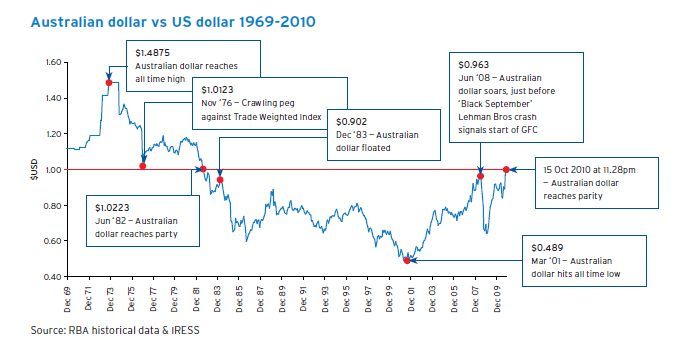Protect Your Portfolio from Currency Fluctuations
Post on: 20 Июнь, 2015 No Comment

Currency curveballs can bean the best-laid financial plans. Here are some strategies to minimize their impact on your holdings
So much for the strong dollar. On Mar. 18, the greenback plummeted 3.5% against the euro after Federal Reserve Chairman Ben Bernanke announced the U.S. would begin buying billions of dollars in U.S. Treasuries. It was the dollar’s largest one-day drop since the European common currency was introduced in 1999. And despite the dollar’s fall, no other currency has proven an alternate safe haven—not even the Swiss franc. While currency swings may seem an abstract concern, they can have a big impact on your finances.
How big? When Kimberley Warden, 35, won the Sloan Fellowship at the London Business School in 2007, she left behind her job as a lobbyist for the Center for Responsible Lending in Washington, D.C. and headed to Britain to get a management degree. Tuition was covered, but Warden estimated that expenses would run Pound30,000 and with the exchange rate roughly $2 for every pound, it would amount to some $60,000. Warden, who planned to work in Britain after she finished the program, figured she could earn the money back at the same 2-to-1 ratio. But in August 2008, the pound started to fall against the dollar and by December, a pound was worth around $1.50. I thought, ‘At least when I finish I’ll be earning pounds, and I’ll try to replenish my savings,’ she says. But I’m always on the wrong side of the exchange rate fluctuations.
All of us, to some degree, live with currency risk, though a weak dollar may go unnoticed until you decide you prefer a French Bordeaux to a California cabernet. Some people have currency risks in their portfolios, careers, and even real estate holdings. And each case may require a different approach to managing currency complications. There is no 100% right answer, says Erika Safran, a financial planner with Financial Asset Management in New York. It depends on how much risk you want to take with your money.
PURE PLAY
Most investors are exposed to foreign currency fluctuations through their stock and bond investments. The key is finding the right level of exposure. Aaron Gurwitz, head of global investment strategy at Barclays Wealth (BCS), recommends that foreign-denominated assets—international stock and bond funds—make up 20% to 25% of an investor’s portfolio. If the fund is unhedged (some international funds choose to remove currency risk from the portfolio), investors will have exposure to foreign currencies, as well as foreign assets. For an example of the impact of currency exposure, look at the return of the MSCI EAFE Index, where currency exposure deepened its loss over the past 12 months by 9 percentage points; in the 12 months prior, it added 12 percentage points. (The index tracks stocks in developed countries in Europe, Australasia, and the Far East.) For a pure currency play that removes the equity or bond risk from the mix, there’s the PowerShares DB US Dollar Bearish (UDN) exchange-traded fund (ETF), which purchases euros, yen, pounds, Canadian dollars, Swedish kronor, and Swiss francs. Most people should buy a basket, not a single currency, says Samson Capital Advisors’ Jonathan Lewis.
But effective hedging often comes through financial planning, rather than financial products. Lisa Kirchenbauer, a certified financial planner with Omega Wealth Management in Arlington, Va. works with a U.S. couple who bought a house in Germany, where they plan to retire. Although the house is paid in full, it still carries fixed costs from utilities, taxes, and maintenance. The owners could pay those bills in dollars each year, though exchange rate fluctuations would make budgeting difficult. A strong dollar would reduce payments, but if the greenback fell against the euro, payments could be much, much higher than planned for. Kirchenbauer’s solution? She recommends computing the annual cost and setting aside enough cash in a euro-denominated bank account to cover at least three to five years of expenses. You want to set aside enough money so the property is self-sustaining, she says.

A speculator in foreign real estate faces other risks. Because property is hard to sell quickly, it has a different risk profile than a stock or bond, and a speculator might not want the additional currency risk. So an owner of a property in Russia could engage in a simple hedge that shorts the CurrencyShares Russian Ruble Trust, an ETF that tracks the rise and fall of the ruble against the dollar. If the ruble falls, an investor would be protected. If it rises, the investor will lose money, although he would make it up if he sold the apartment. Still, Financial Asset Management’s Safran says it’s worth the trade-off. It’s enough that you have economic, investment, and commodity risk, she says. You can win big without the currency risk.
DUAL ACCOUNTS
Overseas jobs can create their own array of currency issues. Americans working overseas get paid in a foreign currency but have most of their assets in dollars. Andrew Rosenfield, a principal with Guggenheim Investment Advisors in Chicago, doesn’t even bother trying to hedge with ETFs or options. Instead, Rosenfield tries to figure out how much of a person’s spending is likely to occur in each currency and divides assets into two accounts.
Warden arrived at a similar solution with her finances. In the long run, she doesn’t know whether she will wind up staying in Britain or return to the U.S. She would like to stay in London, where she works for a nonprofit that loans money to entrepreneurial women in emerging markets. Her assets, however, are almost entirely in U.S. dollars. Warden has decided to maintain two investment accounts, one in the U.S. and one in Britain. Regardless of where she’s working in a decade or so, volatility in the pound or the dollar shouldn’t cause her much angst. There’s only a certain amount of anxiety and stress you can take, Warden says. I’m trying to control what I can control.














